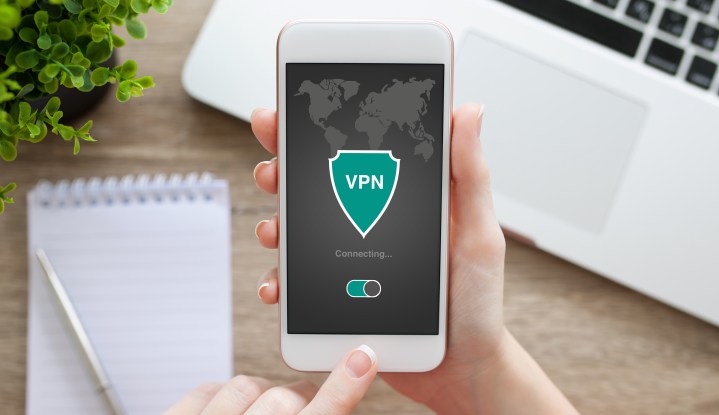
Potentially, having a VPN on your phone is even more important than having one at home. That’s because your phone is much more likely to access numerous public Wi-Fi networks throughout the day which means it’s much more exposed to dangers than any other device of yours. On the plus side, phones may store less data-sensitive information than your laptop but that entirely depends on how you use it.
- A VPN on your phone provides you with significant protection
- You can work on the move
- You won’t be tracked
- You can circumvent geo-restrictions
- You can avoid censorship issues
- You can tether your phone safely
- Video calls are safer
- Shopping online could be cheaper
- Speeds can be more reliable
- There’s nothing to lose
To narrow things down for you, you absolutely do need the best VPN for your smartphone. If you’re still unsure, read on and we’ll explain why it’s so important to have a VPN on your phone.
A VPN on your phone provides you with significant protection
Check out exactly what is a VPN and you’ll see that their primary purpose is to add extra security. A VPN adds an extra layer of protection between you and the internet. It tricks websites and even your ISP into thinking you’re browsing from a different location ensuring that your activity can’t be tracked.
When using your phone on a public Wi-Fi network, this is even more important as it means you don’t have to rely on the security level of the unknown network. A public Wi-Fi network is open to abuse with hackers potentially using it to infiltrate systems that aren’t well defended — i.e. ones that don’t use VPNs. Remember — there’s no guarantee that the public Wi-Fi network you’re connected to is as secure as it should be. Even when visiting a chain cafe, the network can be quite weak compared to your home security.
If you plan on using your phone regularly on a public Wi-Fi network, you need to keep it secure with a VPN. That’s even more so the case if you regularly use your phone to check your online banking or other sensitive accounts.
If you solely use your phone’s data plan, the risk is lower but it’s still there. Using a VPN means you won’t have to worry about any potential dangers. It’s great peace of mind and should help you stay secure.
You can work on the move
Because using a VPN is much more secure, you can deal with work tasks much more safely on your phone. If you regularly receive emails on your phone that contain highly sensitive content, you don’t want this to be open to abuse due to an unsecured network. Set up a
You’re likely to log into services on your phone that you also use on your laptop or computer. These passwords can be exposed to hackers without a VPN. Your computer is only as safe as your most vulnerable device and that tends to be your smartphone. Keep it secure at all times so that all your other devices are safe too.
You won’t be tracked
As when using a VPN on your PC or Mac, using a
If you want to browse anonymously on your phone, you need a VPN so that your information remains private at all times. After all, no one really wants to sell their demographic data even if some companies suggest that it means you gain more relevant adverts.
You can circumvent geo-restrictions
If you regularly travel with your smartphone, it’s useful to be able to circumvent geo-restrictions that may be in place. For instance, if you regularly use Netflix, your Netflix selection will change depending on which country you’re in.
If you travel to the U.K., you’ll see what’s available on the U.K. Netflix service but you might want to watch something on the U.S. version instead. Changing your location via the VPN means you don’t miss out. Similarly, if you simply want to see what a different store offers, you can do so by changing your location. That way, you get plenty more options.
You can avoid censorship issues
Traveling can also mean you come across some censorship issues. Depending on the country you’re visiting, some websites may be inaccessible. Some countries even ban specific social media services and you may wish to use these. Using a VPN on your phone means you can still use TikTok, Twitter, and all your other favorite social media apps without a problem.
You can tether your phone safely
By setting up a VPN on your phone, you’ve just made your laptop safer. That’s because often when traveling, you may use your phone as a hotspot or tethering device so that you can connect to the internet on your laptop easily.
If you use a VPN, you get all the benefits of
Video calls are safer
Potentially, when taking a FaceTime, Skype, Zoom, or any other kind of Wi-Fi-based call, a remote user could access your chat or call. As you’re likely to regularly call people on your smartphone with Wi-Fi calling the much easier and clearer option, this can be a big risk.
Set up a VPN and your video and voice calls through Wi-Fi are encrypted. That way, you can guarantee the only person who hears the content of your call is the person you’re talking to. For sensitive matters, this is extra important.
Shopping online could be cheaper
Regularly buy stuff online with your phone? As when using a VPN on your computer, prices could work out to be cheaper. That’s because due to some controversial pricing practices, airline tickets and hotels can work out more expensive if the site in question notices you’ve been browsing a lot for something similar.
Use a VPN and the site can’t see what you’ve been browsing beforehand, ensuring you get the lowest price possible. If you’re traveling, it’s likely you’re using your phone to book the next stop, so the savings can be huge in the long term.
Speeds can be more reliable
Many public Wi-Fi networks restrict your speeds and bandwidth after using it for an extended period of time. Using a VPN makes it harder to track your usage so you often benefit from top speeds and bandwidth for as long as you need to.
Bear in mind that using a VPN can slow things down a little but that’s where researching the right
There’s nothing to lose
VPNs are very inexpensive these days and simple to set up. Because of that, there’s really nothing to lose when using a VPN on your phone.
At their simplest, they ensure your data is secure from a website trying to learn more about you. However, they can also keep you safe when accessing less familiar public Wi-Fi networks which may be unsecured.
A VPN on your phone also gives you other benefits like being able to get cheaper flights or simply being able to watch more Netflix shows. You really won’t want to miss out here.
Editors' Recommendations
- 10 iPhone productivity apps you need to download right now
- Your iPhone just got a new iOS update, and you should download it right now
- No, the Journal app on your iPhone isn’t spying on you
- The best folding phones in 2024: the 6 best you can buy
- What iPhone do I have? How to find out your iPhone model number


